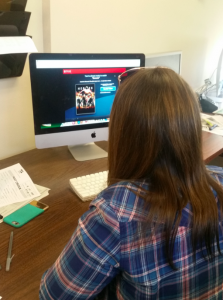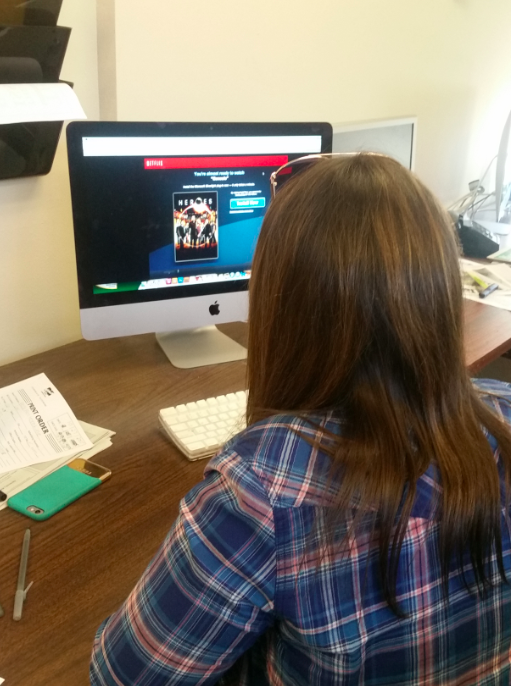By Julian Wilson
Opinions Editor
“Star Wars,” “X-Files,” “Heroes,” “Jurassic Park,” “Mad Max,” — even the return of old Nickelodeon shows with its new, anticipated channel, “The Splat.” One could wonder, what exactly does it mean? Are we genuinely attempting to revive and reinvent the golden, ‘blockbuster age of media’, or is the media itself simply aiming to tug on our heartstrings of nostalgia for a quick buck?

Photo: Kristen Linsalata
According to Don Steinberg’s Wallstreet Journal article, entitled, “Hollywood Digs Into Archives to Revive Old Franchises” (April, 23), Steinberg dives into his thoughts on the subject. “It would be romanticizing the business to chalk it all up to nostalgia, to suggest that 1980s kids grew up to run studios and now decide what movies to release based on their childhood memories. Studios own franchises and are always looking to monetize them.”
If this is the case, why now? Is there something special about this current time we live in that allows for old franchises to still hold such prominence in our daily lives, or is it something related to the concept of nostalgia in itself?
According to John Tierney’s New York Times article, entitled, “What Is Nostalgia For? Quite a Bit, Research Shows,” (July 8, 2013), nostalgia can be integral and can make us feel more ‘complete.’
“Nostalgia makes us a bit more human,” says Dr. Constantine Sedikides, who previously encountered strange feelings of nostalgia when having lunch with a former colleague.
“Nostalgia has been shown to counteract loneliness, boredom, and anxiety,” Sedikides said. “It makes people more generous to strangers and more tolerant of outsiders. Couples feel closer and look happier when they’re sharing nostalgic memories. On cold days, or in cold rooms, people use nostalgia to literally feel warmer.”
What do students think about nostalgia and its hinted connection to the old franchise names that we know and love?
For Cara Grogilo, a senior art education major, nostalgia plays a very important role in her life. “Nostalgia has affected me greatly in terms of what I watch,” she said. “For example, when ‘Dragon Ball Z: Battle Of Gods’ came out in theaters, my boyfriend and I got those tickets in advance. ‘Dragon Ball Z’ was a popular anime on Toonami in the ‘90s – early 2000s. Grogilo thinks it is really smart from the media industry to capitalize on nostalgia, which she believes is exactly where they are going.
Meanwhile, Eric Goodmark, a senior electronic media major, said that nostalgia has affected him, but not really at an emotional stage. “I mean, when there is something form back in the day that I really like, I’ll be passionate on my fondness for it,” Goodmark said. “But not in a way where I’ll start tearing up or anything.”
In a general state of mind, Goodmark believes that the concept of nostalgia is intriguing. “No matter how much I loved a series back in the day, going back to it now, I can still look at it critically, and remember it was because nostalgia was making it seem better than it actually was,” he
said. Personally, I definitely agree with the concept that feelings of nostalgia drive out our emotions of thrill and excitement when hearing about an old franchise making a return to the big screen. I think that many factors are involved with the process, but above all, it makes us think about our childhood, and what we used to be connected to in a positive way, and in my opinion, that’s a very healthy thing. I love feeling nostalgia and similar feelings to it, because it provokes emotions that make me feel ‘warm’ inside, and overall, excited and ready for what may come my way — in this case, media-wise.




Be First to Comment